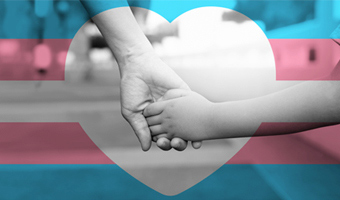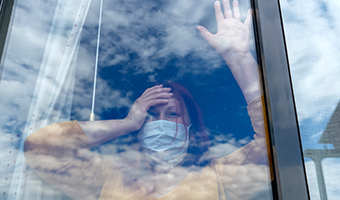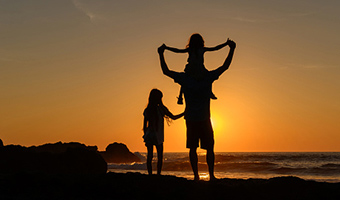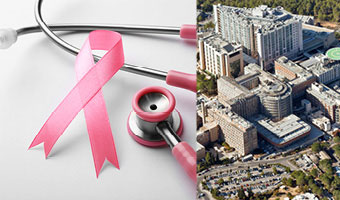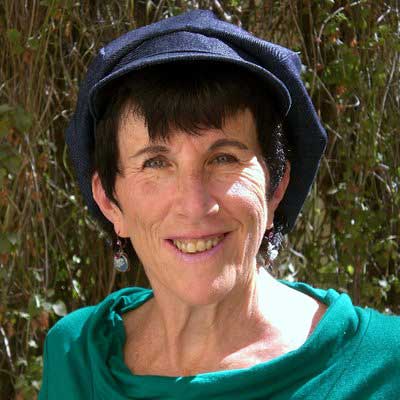
By Barbara Sofer
As the Israel Director of Public Relations for Hadassah, the Women's Zionist Organization of America, I've written so many articles about women's heart health that I know heart attacks are hard to self-diagnose.
The "elephant on the chest" presentation is often absent. Sometimes a heart attack feels like indigestion.
I don't have chest pain. I have a sharp, sudden pain between my shoulder blades and it won't go away.
If this happened during my work hours, I would leave my office on the ground floor of Hadassah Hospital Ein Kerem and take the elevator to the cardiology department, just to be sure. I would find a cardiologist who would reassure me.
But it's Shabbat (the Sabbath). I'm in my synagogue, Shira Hadasha, happily listening to a harmonious Torah reading. It's one of the most relaxed moments of my week.
I try to fidget the pain away, but it won't budge. I wait for it to pass, like a cramp. I try to rationalize it away, looking for an excuse for the pain. I'm a double-digit grandmother and it's not as if I haven't had indigestion before.
The only thing different in my day has been a new brand of Italian instant coffee. I can't convince myself that the coffee has caused this pain.
I time the pain. Twenty-five minutes go by. The pain has radiated to my jaw. Not a good sign. I should probably leave now, but I don't. I decide not to stand during the rest of the service. And then I see my solution. Dr. Yael Adler-Levy, a Hadassah radiologist, is in synagogue. I ask the woman sitting to my right to ask her to come over to me. When she sits down and quietly inquires what's happening, I get suddenly teary. Dr. Adler-Levy consults with Prof. Uzi Entebbe, a Hadassah gynecologist, on the men's side of the curtain. They confirm what I already know. I have to go to the Emergency Room. Like many women, I feel acutely embarrassed. I know embarrassment and denial are a women's problem. How many times have I written about this? But there it is. I'm embarrassed. I can't believe this is real.
The synagogue Kiddush (reception following the prayer service) is outdoors and I don't want everyone to see me taken away.
Dr. Adler-Levy assures me that the ambulance will pick me up from a discreet place on the side of the synagogue. The medic in the ambulance examines me and gives me aspirin. Perhaps because he's picking me up from a synagogue on Shabbat he promises to take me to the closest hospital. "Not if you want me to get in," I say. I only want Hadassah with its outstanding cardiology department. I only trust Hadassah.
The sirens sound as they take me to Hadassah Ein Kerem.
I'm carried into the Judy and Sidney Swartz Center for Emergency Medicine, familiar territory for me--but not as a patient. Possible heart attacks are taken seriously here--for women, too. I am examined once and twice and three times. I have a whole Shabbat of tests and observation.
As I've said, it isn't a heart attack, just a mysterious pain. Relief is an understatement. Still, with my dismissal, I am left with additional tests to take, to rule out a few possible issues. I am also left with a resolution to give my own health a little more priority. Family history? My mother, her three sisters, and her brother all reached old age in robust physical and mental health. One of my mother's sisters, a heavy smoker, died in her late 80s. The others made it into their 90's. But my father and his six siblings died young. My father died at 63 of a stroke and his brother died at 61 of a heart attack.
I'm more like my father, but I hope I have my mother's longevity genes. To rule out an aorta leak, a rare but scary reason for back pain, I am advised to have a heart Cat Scan. I do that the following week at the Hadassah imaging clinic.
Thankfully, no leaks. The picture does show some plaque on one of my arteries.
Even though I'm told not to worry, I don't like that term "arterial sclerosis." I have been eating Mediterranean food nearly all my adult life and I swim five times a week. Why wouldn't my arteries be perfect?
The Linda Joy Pollin Cardiovascular Center for Women
I decide to visit the Linda Joy Pollin Cardiovascular Center for Women, which is conveniently located an elevator ride away from my office, on the seventh floor.
The Pollin Center promotes cardiovascular health in women at every societal level, from the personal to the national. Best known are the fascinating culturally appropriate community intervention programs that bring heart health to high-risk women. Target populations for community interventions include Arab women, Ultra-Orthodox women, the disabled community (men and women), disadvantaged women, and hospital employees. The Pollin Center is also involved in translational research, health care provider education, and a coordinated effort to develop an awareness campaign and to influence public policy.
I have filmed the Pollin Center in action in schools around Jerusalem. Part of the Center's goal is to inculcate heart healthy habits in the high-risk population. Arab women are often exposed to secondary smoke and are often overweight. Nearly half of them have diabetes.
Women in the extreme Jewish religious sector with large families frequently neglect their health and are also at high risk. It's important to inculcate good health habits early.
The Pollin Center includes a multidisciplinary cardiovascular clinic for women, with an emphasis on lifestyle change. I phone and make an appointment.
Clear the morning, I'm told. The check-up will take four and a half hours. Bring comfortable shoes.
I am greeted by a nurse who gives me an overview of my day, does an intake, and asks if I am willing to participate in the on-going research. Of course I agree.
We all know how important research on women's health is, and how for decades heart research was done on men only. We all know what great researchers are the doctors and nurses at Hadassah Hospital, where half the hospital research in Israel is conducted.
Workout in the Hospital Hall
A physical therapist puts me through a battery of tests for which I need the gym shoes.
There's no gym or clinical work-out room here, a reminder of why we have to renovate the 1962-vintage building that was new the year the Beatles released their first single and John Kennedy was President. She times me as I walk my fastest along the corridors of the neurology clinics, almost literally running into our world-famous neurologists. In a physiotherapist's office, I have to stand up from a sitting position as many times as I can. How firm is my grip?
Then the dietitian goes over every bite I take in during an average week.
Turns out that I may think I'm on the Mediterranean diet, but I also have an Ashkenazi sweet tooth. The psychologist talks to me about my life and possible stress. Dr. Donna Zfat-Zwas, Director of the Pollin Center, gives me a full examination, and goes over my medical records with great care, pointing out a few blood tests I've somehow missed. I get a good report, but there are indeed numerous suggestions, among them tweaking my eating, my medications, and my exercise routine. I trash my stash of chocolate, sign up for resistance training, and change my statins. Reducing stress is more complicated, but I'm trying.
Thankfully, it wasn't a heart attack. I like to think of that Shabbat pain as a wake-up call to take my health to heart. I thought I was doing well enough, but I learned I can do better. Can you? It's Women's Heart Month. I love wearing red, but that's just a start.
It wasn't a heart attack, but how could I have known?
The answer is, I couldn't have. Going to the ER was exactly what I needed to do. Better safe than sorry.
I have on a red hat.
From Jerusalem, a happy heart healthy month to all. — Barbara Sofer
Learn more about the Hadassah Medical Organization.


